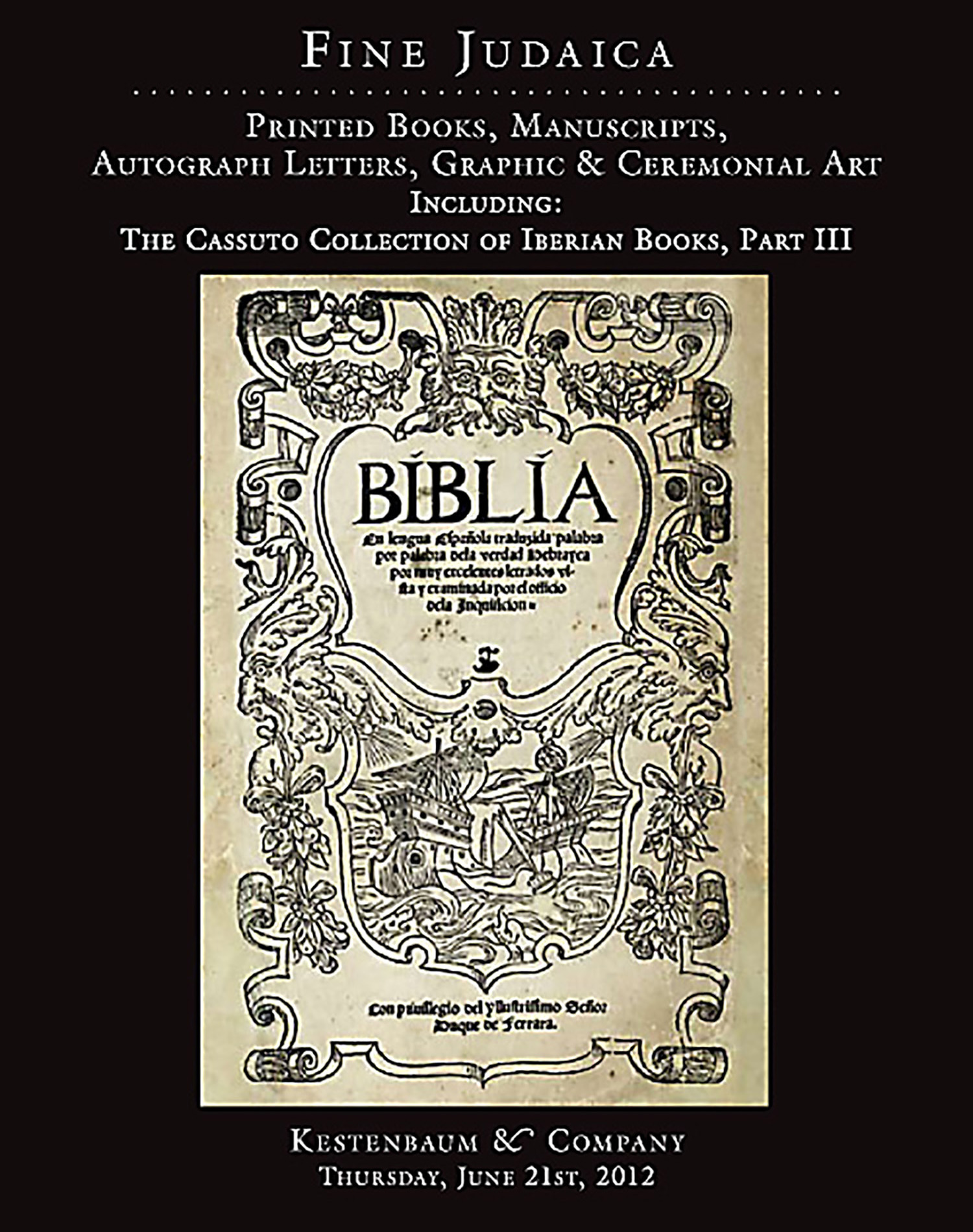Edital da Real Meza Censoria. [“Public Notice of the Royal Censor”: condemnation of Anacephaleoses da Monarchia Lusitana by Manoel Bocarro Francez]

AUCTION 55 |
Thursday, June 21st,
2012 at 1:00
Fine Judaica: Printed Books, Manuscripts Autograph Letters, Graphic & Ceremonial Art
Lot 333
(PORTUGAL).
Edital da Real Meza Censoria. [“Public Notice of the Royal Censor”: condemnation of Anacephaleoses da Monarchia Lusitana by Manoel Bocarro Francez]
Lisbon: December 16th 1774
Est: $700 - $900
First published in Lisbon in 1624, Anacephaleoses da Monarchia, Luzitana Bocarro’s epic poem in 131 octaves, was dedicated to King Philip IV of Spain (who was simultaneously King Philip III of Portugal). Though comprised of four parts, only the first part was ever published. Tracing the Portuguese monarchy from its inception to the Author’s day, the poem is interwoven with astrological and kabbalistic allusions.
All three editions of the work (Lisbon, 1624; Rome, 1625; and Hamburg, 1626) were condemned to be burnt upon the pyre in Lisbon’s Praça do Commercio on the 16th of December, 1774. Evidently what aroused the ire of the Royal Censor was the Author’s seditious suggestion that there would arise a new Portuguese Empire supplanting the present dynasty. The book’s preoccupation with the pseudo-science of Alchemy seems to have been another reason for its proscription.
Marrano physician, philosopher, mathematician and astronomer Manoel Bocarro Frances (Jacob Rosales) (1588-1662) was born in Lisbon and studied at the University of Coimbra and the University of Montpellier, France - thus his sobriquet “Frances.” Bocarro fled before the Inquisition to Italy, where he befriended the astronomer Galileo Galilei. From Rome he continued to Amsterdam, and eventually in 1631 to Hamburg, where he opened a medical practice, became physician to the Danish court and was an active member of the thriving Sephardic community. He corresponded with the Dutch Rabbi Menasseh ben Israel and also with the preeminent Marrano physician of the day Zacutus Lusitanus.
